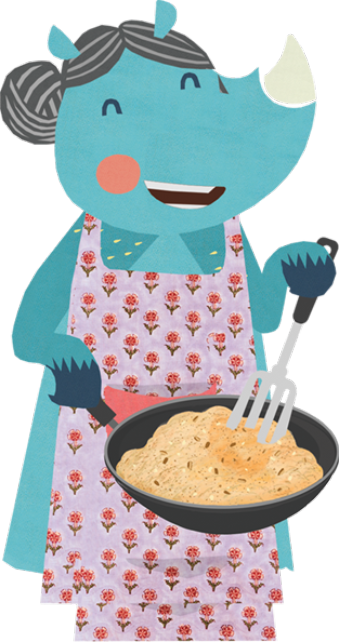As your baby grows and develops, a balanced diet becomes very important. Let’s delve into more detail today.
What Is a Balanced Meal?
A balanced meal includes a mix of different food groups that provide essential nutrients for overall health. It typically consists of:

Why Balanced Meals Are Important for Your Baby
A balanced meal provides your baby with all the necessary nutrients they need for healthy growth and development. A single food type cannot provide all the essential nutrients, and that's why it's important to provide multiple foods that contain these nutrients.

What Are Macro and Micro Nutrients? Why Do They Matter?

Macronutrients
Carbohydrates

Bread

Pasta

Rice
Proteins

Meat

Fish

Beans
Micronutrients
Vitamins

Fruits

Vegetables
Minerals

Dairy Products

Leafy Greens
|
Macronutrients |
Micronutrients |
|
Nutrients that our body needs in large quantities to function properly. They make up the majority of your baby's diet and are essential for growth and development. |
Nutrients that our body needs in smaller amounts, but are still very important for maintaining good health. These include vitamins and minerals like iron, calcium, and vitamin C. |
|
|
|
2) Minerals are important for building strong bones, and can be found in foods like dairy products and leafy greens. Examples: Iron, calcium, zinc. |
|
3) Fats are important for insulation and protection of our vital organs, and can be found in foods like nuts, seeds, and oils. |
(We will explore these key nutrients in detail next week onwards.)
How to Plan a Balanced Meal for Your Baby?
Your baby’s meal should include foods that contain iron, protein, and fat. Sometimes, this can be incorporated into a one-pot meal; e.g., a veggie khichdi with ghee. Or you can offer these as separate foods; e.g, idli + sambhar + ghee-roasted sweet potato. Iron-rich foods are usually also protein-rich, making planning easier.

















